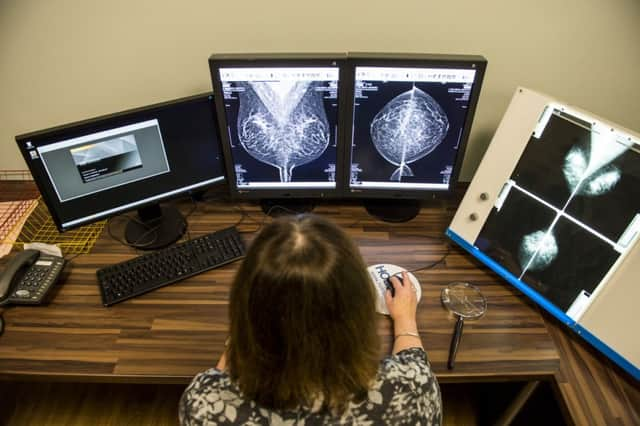Breast cancer drugs in second rejection


At the beginning of November, the secondary breast cancer drug Perjeta was rejected for routine use on the NHS in Scotland. This followed a decision to reject the drug Kadcyla at the start of October for the same reasons – they aren’t considered value for money.
Whilst my disappointment won’t change the decision, it’s something I feel deeply. The story gained a significant amount of media coverage, but that merely marked a failure to get high cost but effective medicines to women who need them to stay alive for longer.
Advertisement
Hide AdAdvertisement
Hide AdNo one wants a new, effective medical treatment left on the shelf. Not the pharma companies which spend hundreds of millions of pounds developing drugs. Nor medical professionals who’ve seen the impact of drugs like Perjeta through clinical trials and now face having to tell patients they can’t benefit in the same way. And certainly not patients, who have lost a new tool in their armoury to protect them from the advances of terminal disease.
Perjeta is for people with a type of breast cancer called HER2-positive. It’s given to patients whose cancer has either returned in the breast after previous treatment or has spread to another part of the body. It works together with another drug, Herceptin, to slow cancer growth, and is given together with chemotherapy. It has been shown to work better than alternative treatments, with few additional side effects.
In trials, Perjeta has been shown to increase the time before breast cancer progresses by six months compared to the usual treatment, from 12 months to 18 months. This means patients have an extra six months of good quality life before their cancer continues to grow. Perjeta has also been shown to improve the length of time that patients live by 16 months, which is a huge improvement for patients with secondary breast cancer. Importantly, for most women, these improvements were seen without any significant additional side effects compared to the existing treatment.
But with a cost of a course of treatment costing around £105,000 (because Perjeta needs to be given along with two other drugs), the Scottish Medicines Consortium faced an almost impossible decision to approve it. I was there at the meeting and heard the challenges an approval would put on the NHS in Scotland.
What is particularly disappointing is that Roche, the drug’s manufacturers, did not submit a Patient Access Scheme – which is a way of offering the drug to government at a reduced cost. This could have made all the difference in getting it approved. But that wasn’t done on this occasion. It’s more surprising when you consider that the price this was submitted at was three or four times the level that drugs had previously been approved at in Scotland. Indeed, Perjeta was submitted and rejected by the SMC last year on the basis of cost so, without any reduction, the chances of its getting approval were incredibly slim.
The new system in Scotland is approving drugs that previously wouldn’t have been, so the direction of travel is encouraging for a wide range of conditions. It’s unfortunate that it has rejected two high price but highly effective breast cancer medicines within the first batch to be assessed under that new system. We must look to the drug’s manufacturers to have more realistic expectations of the costs that a public health system is able to accept.
The hard fact is that the hundreds of women who could have had their quality and quantity of life extended in Scotland now won’t routinely get access to this medicine. Whilst patients can individually apply through their healthcare teams to get access to treatments rejected by the SMC, such as Perjeta, this offers no guarantees. We must now look to other solutions that enable women to get equitable access to treatments that could make all the difference for the rest of their lives. And we can’t wait forever whilst this is resolved.
There must be better ways to address the challenges that high price medicines such as these present to the NHS. We must demand a fairer price.
• James Jopling is director for Scotland at Breakthrough Breast Cancer www.breakthrough.org.uk